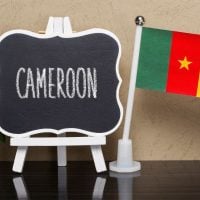Deadline: 4-May-21
The European Commission is accepting applications for its Clean Energy Transition to support for EU Islands.
The Clean energy for EU islands secretariat was set up in 2018 by the European Commission in cooperation with the European Parliament. Between 2018 and 2020, the Secretariat acted as a pilot project supporting the EU-wide community of islands in their efforts to transition to sustainable energy and reduce energy consumption.
The core of the initiative was the Clean Energy Transition Agenda (CETA), which is the recommended process for a solid and inclusive energy transition on the islands. By drafting a CETA, the island communities collectively define their own decarbonisation vision as well as elaborate a series of pathways to reach it.
Objectives
In Phase II, the objective of the Clean energy for EU islands Secretariat is threefold.
- To empower island communities to move from clean energy vision to clean energy action.
- To support a bottom-up approach to decentralised energy transition that relies on proven solutions through transition processes that happen collectively and locally.
- To match bottom-up initiatives with expert support that has a real impact on projects that are happening on the ground.
- The Secretariat implements solutions to support the energy transition of all islands in the EU:
- Through the Clean energy for EU islands pledge, islands can sign up for the initiative and show the rest of the EU Island community their ambitions.
- Workshops are organised as energy academies that engage island communities to act at the local level and take up an active role in energy transition projects on their island.
- Tailored technical assistance helps islands to tackle energy issues in a multidisciplinary way and supports them to coherently overcome technical, social, financial, juridical and policy barriers. Support is given to transition agendas, but also to action plans and individual projects.
- The Islands Marketplace facilitates financing to energy projects on islands by matching island communities with investors and technology providers.
- Stakeholders from different levels of governance are brought together in an Islands Think Tank to discuss legal and regulatory barriers for clean energy on islands. This leads to concrete solutions that overcome the existing barriers.
- The EU islands website disseminates the success stories and challenges of islands to the EU community and builds a European network of island stakeholders.
- The Clean energy for EU islands forum increases the visibility of the initiative and matches island needs with available solutions.
The Secretariat’s methodology: Explore, Shape, Act
Through its technical support, the Secretariat aims to offer solutions to all EU Islands. Depending on how advanced islands are in their progress towards clean energy, the support they receive is categorised in Explore, Shape or Act:
- EXPLORE Islands just starting their energy transition may apply for support in the Explore category. These islands are building a coalition of the willing, defining an island energy vision and exploring possible transition pathways for their islands.
- SHAPE Islands in a more advanced phase are shaping concrete action plans and individual projects. The technical support within ‘shape’ takes an investor’s point of view and helps islands to outline a pipeline of clean energy projects. The ultimate aim is to develop an action plan that is ready for financing.
- ACT Islands that are ready to act will receive support to find financing for individual projects and conduct tenders for concrete projects. The Secretariat provides support throughout the development phases, including tendering and structuring financing packages.
Eligibility Criteria
Location
- To be eligible for support, projects must be located:
- On an island belonging to one of the Member States of the European Union (EU), including their outermost regions but excluding overseas countries and territories which belong to a member state but do not form part of the EU territory.
- On an island with a maximum area of 30,000 km.
Beneficiaries
- An eligible application requires the support from at least two stakeholders from two different stakeholder groups. One of the stakeholders needs to be a public authority or a civil society organisation. All the public and community-led entities established in the Member States of the European Union, including their Outermost Regions, are eligible.
- Stakeholders may be classified into four different groups, as indicated in the Clean Energy Transition Agenda template and the Islands Transition Handbook:
- Civil society organisations
- Public sector
- Businesses
- Academia
- The support is aimed at enabling island communities to realise a clean energy future, thus making island communities the ultimate recipient of the benefits. Direct recipients of the support will be focussed on public entities and community organisations, such as energy communities and cooperatives that cooperate with multiple island-based stakeholders. While private entities can also apply for support, applications need to demonstrate how the provided support will bring benefits to the entire island community, rather than only financial gains to the project promoter.
For more information, visit https://ec.europa.eu/info/news/call-applications-clean-energy-transition-support-eu-islands-2021-mar-31_en









































